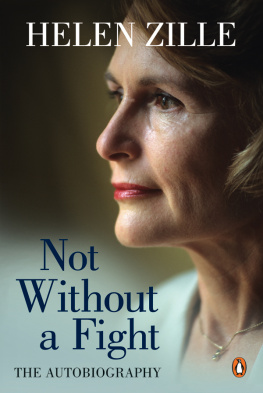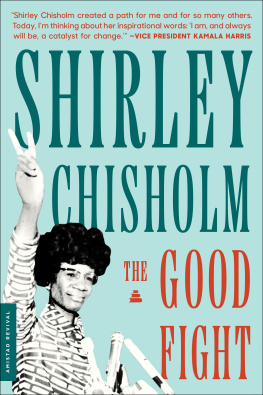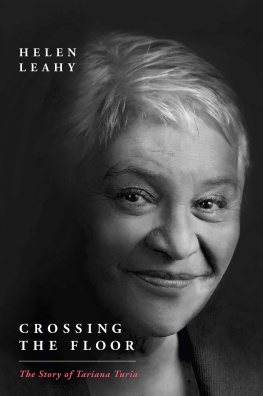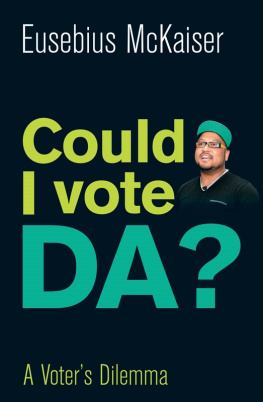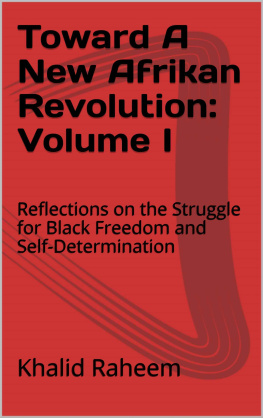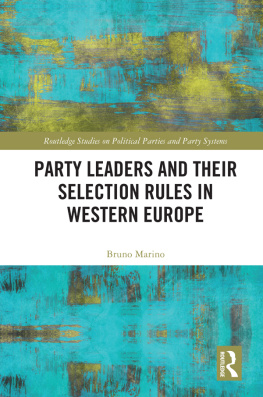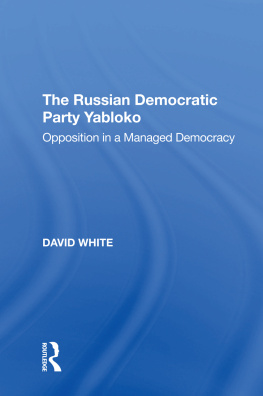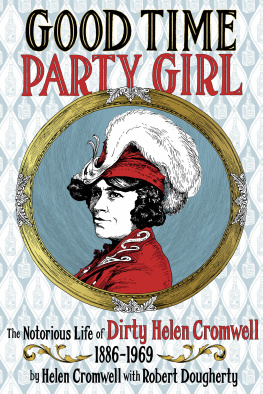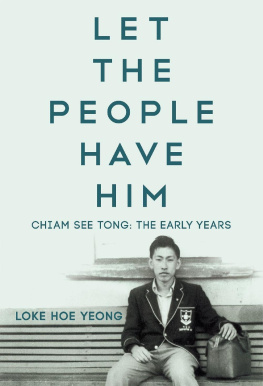
Published by Penguin Books
an imprint of Penguin Random House South Africa (Pty) Ltd
Reg. No. 1953 / 000441 /
The Estuaries No. , Oxbow Crescent, Century Avenue, Century City, 7441
PO Box 1144 , Cape Town, 8000 , South Africa
www.penguinrandomhouse.co.za

First published 2016
Publication Penguin Random House 2016
Text Helen Zille 2016
Cover photographs Eric Miller
All rights reserved. No part of this publication may be reproduced, stored in a retrieval system or transmitted, in any form or by any means, electronic, mechanical, photocopying, recording or otherwise, without the prior written permission of the copyright owners.
Publisher: Marlene Fryer
Managing editor: Robert Plummer
Editor: Alison Lowry
Proofreader: Ronel Richter-Herbert
Cover designer: Ryan Africa
ISBN 978 1 77609 042 6 (print)
ISBN 978 1 77609 043 3 (ePub)
Politics is about power: how it is won, used, manipulated, subverted, held to account, lost and regained.
Unsurprisingly, it attracts extremes from idealists who want to make the world a better place, to the unprincipled who are in it for their own selfish ends.
A countrys prospects depend on how it is governed. In a democracy, the people make that choice.
This book is dedicated to the new generation of politicians who have the guts, the integrity, and staying power for South Africa to succeed.
You need to know: it wont happen without a fight.
Contents
Preface
T HIS BOOK IS the story of two main strands of my life: my personal and political journey. There is a third strand required to complete the picture, which I hope will provide the content of another book. The third strand is the story of how I, together with many others, addressed the challenge of building capable state institutions at local and provincial level, to address our countrys major challenges.
When South Africans elect a new national government, hopefully sooner rather than later, committed to building a capable and professional state, based on the rule of law and a culture of accountability, I hope the new cabinets efforts will be informed and supported by our experience of trying to do the same, from the bottom up.
Cape Town and the Western Cape Province were initially the only places where we could win enough voter support to begin our quest to strengthen South Africas democracy. And that support is growing, countrywide, making it possible to do so in more and more places.
The process has been fraught with personal and political challenges, which is what this book is about. In the process of writing it, I could sometimes hardly believe the story myself but it is all true as I recall it. And I have loved every minute of it.
I hope it gives readers an insight into the complex, often Machiavellian (and sometimes noble) world of politics that lies behind the media statements and newspaper headlines.
HELEN ZILLE
AUGUST 2016
1
Roots
It is what it is;
You are where you are;
Your baggage will find you later
Jewish Buddha
W HEN YOU START your memoirs, you think you are going to write your story, but you only begin to discover your story.
In the process of writing mine, I found relatives I did not know existed and read memoirs I did not know had been written. I have excavated historys hidden chains and come to terms with lifes unpredictability.
My voyage of discovery started on a chilly autumn morning, May 2015 , in the Jewish cemetery in Pinelands, where I had been invited, as premier of the Western Cape Province, to attend the annual Yom Hashoah Holocaust memorial service.
There I heard Ella Blumenthal, a ninety-three-year-old woman, make a short speech. I did not know her. I had never even met her. But as she spoke, she peeled away layers of my own life, releasing snippets of memory I am only now, in my mid-sixties, beginning to piece together.
In a matter-of-fact tone, Ella recalled losing twenty-three members of her immediate family: her parents, her brothers, her sisters, their spouses, and eight nieces and nephews the only other survivor being my eldest niece, Roma.
Her struggles and heartbreak remained untold. So private are these that when she moved to Johannesburg after marrying a South African she had known for just thirteen days, she had the tattooed concentration-camp number on her arm surgically removed. She told her children that the scar was the result of an accident.
Actually, I do know Ella Blumenthal. Almost everything about her is intimately familiar to me, from her strong accent, to her lack of sentimentality, to her determination to bury the past and keep moving forward. She propelled me back to my grandmothers tiny flat in Hillbrow, Johannesburg, in the late 1950 s.
Every second weekend my father, Wolfgang Zille, took me and my younger sister, Carla, to see her. As soon as she opened the door, we could smell the over-ripe Camembert she kept on a tray under a damp cloth next to the porcelain milk jug and butter dish, because she had no fridge. The highlight of each visit was sharing the Kit Kat she always produced, as a surprise.
I now regret that I did not ask her more about her life. Back then I was far more interested in when the Kit Kat would appear (we were not allowed to ask for it). In any event, it was difficult to communicate with Granny, because she had lost most of her hearing. She never learnt to listen with her eyes, as my sister Carla did from her earliest years, after sustaining hearing loss as an infant.
Granny had become deaf in old age, and her other senses could not adapt. She spoke halting, broken English. I understood German, but Carla, because of her hearing loss, did not, and so we developed the multilayered communication methods that are part of life in families that incorporate deafness.
Carla and I were fascinated by the large amplifier on Grannys hearing-aid, which she carried in the small breast-pockets sewn onto her blouses and dresses. If we moved it in a certain way, it squealed like our dachshund puppy.
Apart from that, the only items of interest in her flat were two photos on the wall. One showed her parents, Ernestine and Hermann Marcus, with their thirteen children (of which my grandmother was the ninth, and the fifth daughter).
I would climb on the bed (which was covered with a fraying kilim), take the photo off the wall, and ask Granny to go through their names. I was fascinated that she could remember them all, in order, starting with Fedor and ending with Fritz. The only other name I remember from the rest of the incantation was Bruno, because I felt sorry for him having a dogs name. Fritz lived in London. I recall her saying that two sisters had gone to South America. Most of them, Granny said, had died.
They died. From a childs perspective, that is what old people do. I did not give it a second thought.
Grannys chance to escape Nazi Germany came when her sons, Heinrich and Wolfgang, emigrated to South Africa. Once they had settled and found employment as manual labourers at the Modderfontein dynamite factory she could follow. A steady job was a precondition to get a relative into the country, Dad wrote in his memoirs.
Granny came over on the Windhuk , one of the last boats to leave Germany, in July 1939 , six weeks before war broke out. She managed to bring with her an old armoire , a small suitcase, some photos, an eternity ring from her husband and a brooch with five small diamonds, of which Carla and I inherited two each.
Next page
